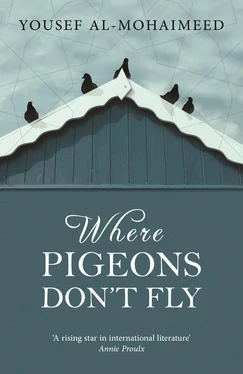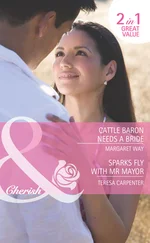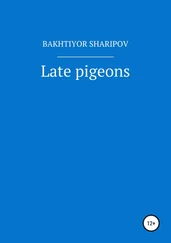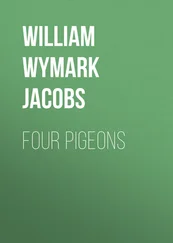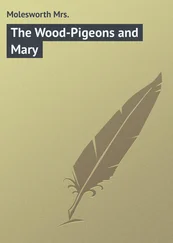‘Take refuge from Satan!’ he said. ‘You must pray, my boy. Pull yourself together and have patience. God is with the patient.’
Fahd stood with Abu Ayoub, Yasser, Ibrahim and Saeed, and the mourners began to crowd around them and kiss them on both cheeks.
‘God comfort you!’
‘God reward you!’ he would answer in a choked voice.
Then they prayed for his mother as he wiped the end of his nose and muttered, ‘Amen. Amen!’
A man presented him with a little bottle of water and he held it without drinking. The man opened another bottle and handed it over, and Fahd took a gulp, tugging at his shimagh that had slipped right back and almost fallen off his head. When he heard Abu Ayoub explain how he would hunt for customers even in the cemetery, and not confine himself to the mosque, Fahd dragged his weary body away and sprinted back to the car in his white socks. Saeed caught up with him and snatched the keys away to drive Fahd himself.
— 58 —
THE FIRST NIGHT AFTER Soha’s burial Saeed decided to distract Fahd from his sorrow and take him around the whole of Riyadh, leaving no street, no alley old or new, unvisited.
They began in South Riyadh, where they circled Badr and Shifa, then drove east on the Southern Ring Road and entered Khanshlaila and Haraj Ibn Qasem before doubling back, taking King Fahd Highway and getting off at Souq Atiqa, briefly entering Suwaidi Street and Sultaniya, and passing Muntaza al-Salam and Old Salam Roundabout. He was flying towards Old Manfouha, but Fahd, remembering the Egyptian sheikh, begged him not to go to that home of jinn and sorcerers. They turned north again into the city, into Old Dakhna, reaching Zaheera Street and from there, Khazan Street, where the Egyptian and Syrian women in hijabs were still wandering around the shops that sold fabric and off-the-peg clothes.
Saeed stopped at Fahd’s request and the pair proceeded on foot between the ends of Zaheera and Suwailam streets and then, crossing the road, they walked beside the wall of Fouta Park. Fahd sobbed as he walked along, tormented and consumed with grief. Without taking his eye off him, Saeed left Fahd to wander erratically ahead. Fahd was rambling along, now and then lifting his face to the sky as if directing blame to someone up there in the heights. Why have you done all this to me? Why bring me into being if you were planning to destroy my life on a whim? What have I done for you to make me a plaything for your enjoyment?
He crossed the little street next to the Fouta Theatre Complex then headed towards the massive mud-brick palace, turning left towards the King Abdul Aziz Centre for Culture and Knowledge and gazing at the trees, tranquil in the dying hours of the night, and the few families in the square, the children riding their bicycles. He stopped, astonished, and looked at them for a moment, searching for someone here who might be missing him and contemplating what might befall these children in just a few short years: what black path awaits them to lead them off to hell?
He made for the expanse of Wazeer Street. Saeed was exhausted by now, panting after him, but Fahd never halted his capricious progress. Saeed wondered how they would get back to the car. Should they take a taxi? He turned left after Fahd, who proceeded down the long street towards Washam Bridge, but halfway along he stopped and looked over at a petrol station on the right, then crossed the street. Saeed assumed he was after a bottle of water from the station’s mini-mart but he halted outside a framing shop and stood staring at the coloured canvases in their expensive frames. It was a place he would come with his father years before, dropping off pictures and posters to have them framed.
Was he searching for his father now?
Fahd walked away a little distance, calm as a wild beast stalking his prey. He glanced at the neon sign that bore the name of Dr Ibrahim Ruslan, his old paediatrician, and clutching at the air before him, walked on for a moment with his eyes closed. Was he holding his mother’s abaya as she took his sister Lulua to the doctor? Saeed felt a shudder course through his body as he witnessed this alarming sight.
It was approaching one in the morning. Fahd had taken a left beneath Washam Bridge. Catching up to him, Saeed said that if he was tired they should go back to the car, but he didn’t answer, silent as an unfaltering camel that knows the desert’s secrets and trusts its instincts. Saeed decided to gently take his hand and take him back along the same road and when he did Fahd didn’t resist, retracing his steps, inhaling vigorously and suddenly bursting into tears then looking about himself in terror.
It was nearly two in the morning. They were heading back to Fouta Park when Fahd resisted and headed north up Khazan Street, crossing King Fahd Road and passing Jawhara Mosque, until they came to the old building where his grandparents had lived before their enforced emigration in early 1991. He sat on the steps of the building, his legs exposed, and cupping his head in his hands he buried it between his knees and wept and wept. Saeed sat down beside him and tugging at his shoulder, pulled Fahd to him.
‘Take refuge from Satan, Fahd,’ he said, then added, ‘I thought I’d cheer you up with the streets and old alleys and happy memories. I had no intention of torturing you and me with you.’
In a voice vague and choked with tears, Fahd replied, ‘There’s not a single place, not one corner or street in this damned city, that doesn’t remind me of my father.’
Once they had got back to the car, Fahd said, ‘I have to emigrate: anywhere in the world. I must leave this place and as soon as possible.’
‘And the university?’ Saeed asked him.
‘Maybe I can start university again, somewhere else.’
‘What about your sister?’
‘Forget it, Saeed, my sister’s become like my uncle now.’
Then, after a moment’s silence: ‘Soon she’ll marry and be busy with her life and kids.’
He looked through the window at Television Tower. ‘Maybe her husband will be like Yasser and convince her that her brother’s an infidel, that his faith is in question because he draws naked men and women.’
‘Maybe.’
‘I just can’t face any more surprises. I can’t follow any more dubious dreams. If they were able to turn my mother’s head — my mother, Saeed — then how do you think things will be with a teenager like Lulua?’
‘You’ve got a point.’
‘Saeed, this is a crazy country, galloping after myths and dreams.’
The message tone sounded on Fahd’s phone: Darling, I’m worried about you. Answer so I know you’re fine.
Saeed didn’t ask about Tarfah and Fahd never thought of her. True, her life was much like his own terrifying existence but she would end up living with another man, like Khaled. Maybe Abdel Kareem would return one day and win her back when he discovered he had a beautiful little girl called Sara.
— 59 —
WHEN SAEED AND FAHD had returned home, the canvas that had cost him so much suffering and gloom still bore its scattered human skulls surrounded by dried tendrils of blood. The morning had begun to spill in from the living room window overlooking the street. He looked out towards the few cars on the Northern Ring Road and the Jarir Bookstore building on the other side.
Despite being utterly exhausted he thought of going for a drive. The Starbucks on the ring road would still be closed, as would the Dunkin Donuts. He tried stretching out in order to get some sleep and entered something like a coma until the ringing phone beside him snatched him awake. It was his scarlet sweetheart, Tarfah. He hesitated a little then answered, his voice excessively hoarse and hollow, as though he were rising from the depths of some painting. For a moment, Tarfah lost her composure, demanding insistently, ‘What’s wrong with you, sweetheart? You sound completely worn out.’
Читать дальше
